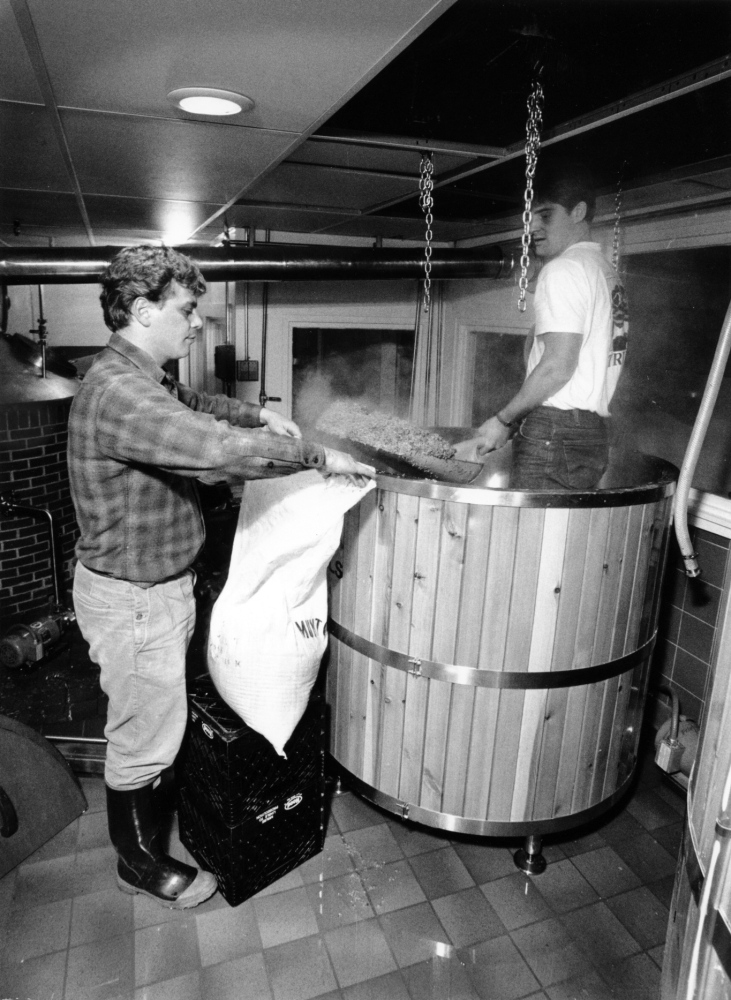SOUTH PORTLAND — Maine is home to a robust and growing craft beer industry, which boasts more than 50 breweries that produce more than 200 different brands. This bright spot on our state’s economy employs more than 1,400 hardworking people, and it has the potential to employ countless more as it expands in the coming years.
This is why a proposed federal regulation on brewers that has the potential to disrupt a longstanding business practice and could result in additional, unnecessary costs is of such concern to us.
That practice is the exchange of spent grain, a byproduct that is leftover after the beer making process. While these heaps of spent grain are of no use to brewers, they are extremely valuable to farmers as protein-rich animal feed.
A LONG HISTORY
For centuries, brewers have sold or given their spent grain to farmers for this purpose. This mutually beneficial transaction is good for brewers (who no longer have to truck their spent grains off site) and good for farmers (who report that spent grains keep their livestock hydrated). Spent grain has been used this way for centuries without a report of either livestock or humans becoming ill.
Nevertheless, a well-intentioned food safety regulation proposed by the U.S. Food and Drug Administration intended for animal food manufacturers could have affected this practice by creating a bureaucratic procedure – a requirement that small brewers submit written plans with periodic updates and a variety of other rigid strictures – that few, if any, brewers now follow.
In other words, the federal government would have added needlessly expensive and time-consuming paperwork to common-sense, effective safety practices.
Some claim that the burden of such regulations is minimal. However, the reality is that these proposals are a big deal for the Maine craft beer industry and a source of enormous concern. Interpreting and complying with them would be costly and could be confusing. Ultimately, they could have jeopardized the exchange of spent grain, which serves Maine’s brewers and farmers so well.
Like all Mainers (and all Americans, for that matter), this state’s craft brewers care deeply about food safety. In fact, if you have ever visited a craft brewery, you are likely to see a fastidiously clean facility where safe practices are emphasized.
Maine’s brewers also understand the importance, both practical and legal, of complying with their regulatory obligations. However, as small businesses, we do not have the luxury of discounting the costs of misguided regulations, or simply hoping that federal regulators “get it right” without our input and the input of our elected representatives.
Accordingly, small brewers in Maine voiced our concerns to our congressional delegation, and without delay, U.S. Sens. Susan Collins and Angus King and U.S. Reps. Chellie Pingree and Mike Michaud quickly built a coalition and did precisely what voters in Maine would expect: They made inquiries with key regulators in Washington on our behalf, and tried to get answers and assurances for their constituents.
From the small brewers’ perspective, Sen. Collins and the other members of the Maine delegation deserve tremendous praise for their responsiveness.
FDA RESPONDS
It is telling that, in response to the concerns raised by our representatives in Congress and our industry, the FDA has now said it will issue new and revised proposals, and that its intent is not to stop this long-standing spent-grain practice between brewers and farmers.
In responding to Sen. Collins during a Senate hearing earlier this year, FDA Commissioner Margaret Hamburg said, “We have heard these concerns . . . We actually do think that this is an arena where there are sensible, reasonable solutions, and we are committed to working toward those, and we think that this issue can be effectively addressed when we put forward a re-proposal this summer.”
It is important to Maine’s brewers and our industry that the FDA make good on this promise. With sound, pro-growth government policies, and with the support of our elected representatives, Maine’s (and America’s) craft beer industry will continue to grow in the coming years and continue to provide good-paying jobs for hardworking Mainers.
— Special to the Telegram
Send questions/comments to the editors.


